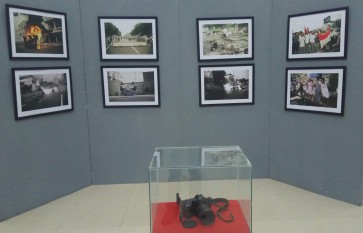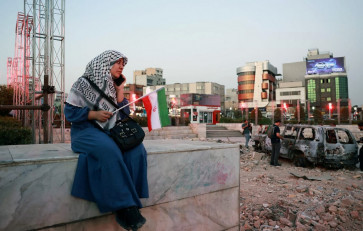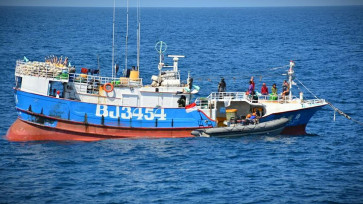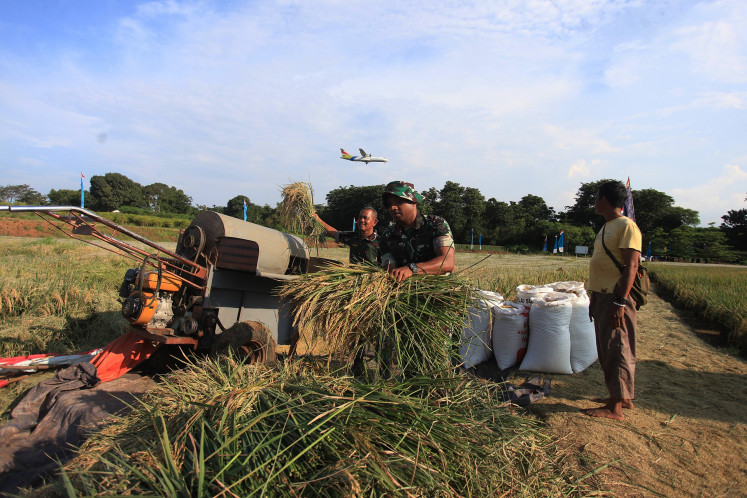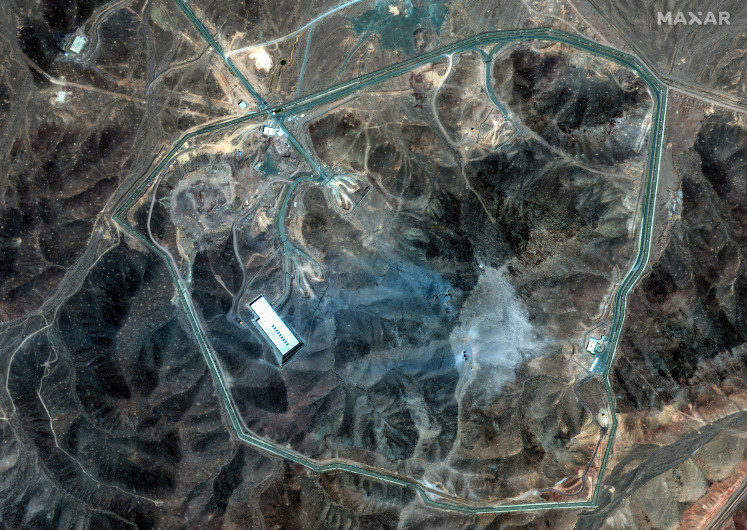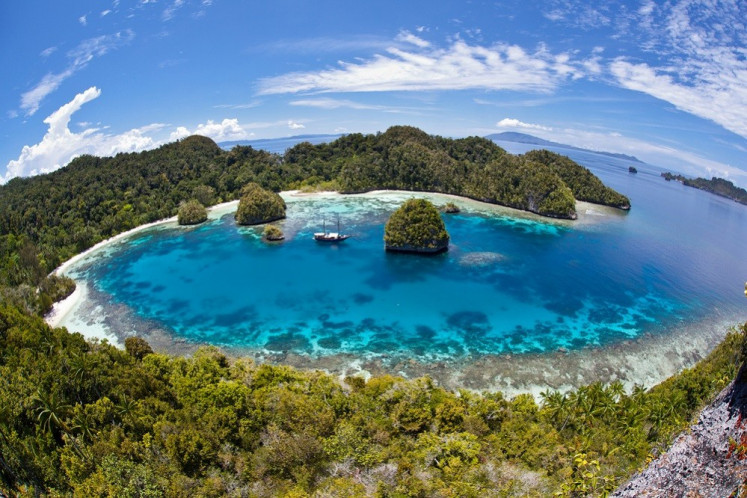Popular Reads
Top Results
Can't find what you're looking for?
View all search resultsPopular Reads
Top Results
Can't find what you're looking for?
View all search resultsMore than a matter of perspective
On many occasions President Susilo Bambang Yudhoyono and Vice President Jusuf Kalla have spoken of the current administrations's successes in improving the nation's economic conditions
Change text size
Gift Premium Articles
to Anyone

On many occasions President Susilo Bambang Yudhoyono and Vice President Jusuf Kalla have spoken of the current administrations's successes in improving the nation's economic conditions. Not only is economic growth quite high -- an average of 6 percent -- but also unemployment is down to 8.5 percent and the poverty level is down to 15.4 percent.
Also at a record high is GDP, GDP per capita, foreign exchange reserves, exports and investments. What they would like to say is that the economy is in much better condition than many critics have been saying.
However, various surveys show that most of the respondents believe economic conditions are down, which means the president's popularity is down. Economic issues, such as the price of basic goods, unemployment and poverty are at the top of the list. Consequently, the President is even less popular than former president Megawati Soekarnoputri.
It cannot be denied that the economy is in much better shape than it was in the post-crisis era. However, the benefits are not equally distributed among different groups. High inflation rates severely punish the low income group. Their purchasing power is eroded due to the higher price of basic goods, transportation and even education.
Yes, the government has done a lot to help them through cash transfers, market operations for basic goods, and by subsidizing education and health care. Nevertheless, this assistance does not offset their increasing financial burdens.
Meanwhile, the upper middle income people in general do not feel the pain of inflation. They have available to them ways of investing their capital which brings a higher return thus compensating for inflation, such as deposits, bonds, shares, real estate and other types of investment. This is evident by reports showing that in general, sales of consumer goods for the high income consumer are still strong, but sales to the lower income earners are stagnant or even declining.
For people who live in the outer islands, especially Sumatra, Kalimantan and Sulawesi, the high prices of commodities is to their benefit. Vehicle sales, consumer goods and even bank funding are increasing significantly in the outer islands.
However, in Java the story is quite different. Javanese farmers mainly cultivate food crops and the price is controlled by the government in order to control inflation. Meanwhile, they have to buy commodities such as cooking oil at the market price.
In addition, the Javanese manufacturing sector is not growing significantly in line with the low growth of this sector. Under these conditions, in general, people on the outer islands have a much better view of the economy than their fellow Javanese countrymen.
The different ways of looking at the economy significantly influences the way people see politics. Common people think the government has a lot to do with managing the economy; of course this is not entirely true under a market based economy, but government popularity is in line with the way people see the economy.
This situation is captured quite well by the surveys which show the President is more popular in the outer islands and among higher income groups. Meanwhile, Megawati is seen as being closer to the poor and hence she is more popular in Java. Similarly, the Golkar's popularity of Golkar is higher in the outer islands as it is seen as a supporter of the government and PDI-P, the opposition party, is more popular in Java.
For the incumbent President and the main challenger Megawati, there is a strong correlation between the way people view the economy and their level of popularity. As people know these two figures, the positive view of the economy benefits Susilo, while a negative view of the economy gives a political advantage to Megawati.
Similarly for political parties, a positive view of the economy benefits Golkar and Susilo's Democratic Party, while a negative image advantages PDI-P. Meanwhile, other likely presidential candidates are not strongly correlated to economic conditions nor are other political parties.
In this situation, Susilo's prospects of reelection and Golkar's victory in the general election will very much depend on how successful the government is in handling inflation and improving the economy -- particularly relevant to those of the lower income group. There is not much time left to do the job, but certainly this is the most effective way to win the support of the majority. This is much more effective than simply trying to convince people that the economy is actually in better shape than what it really is.
The writer is Chairman of CIDES (Center for Information and Development Studies, and Senior Fellow the Habibie Center.

